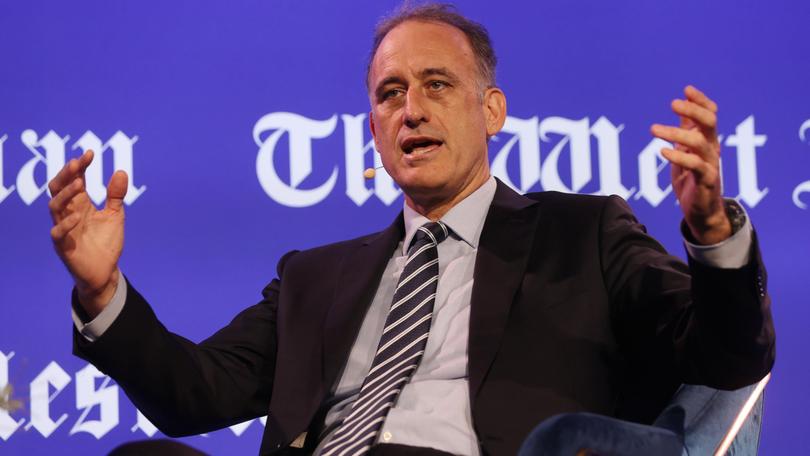Editorial: Rob Scott of Wesfarmers is right in saying IR laws mean ‘more complexity & less flexibility’

Nobody knows industrial relations better than Rob Scott.
After all, the Wesfarmers chief executive has 120,000 employees across the group’s interests which span retail, health, chemicals, lithium and fertilisers.
So when he says Australia’s IR system is heading towards a “dangerous situation”, we hope the regime’s architects in Canberra are furiously taking notes.
Sign up to The Nightly's newsletters.
Get the first look at the digital newspaper, curated daily stories and breaking headlines delivered to your inbox.
By continuing you agree to our Terms and Privacy Policy.Speaking at Seven West Media’s Leadership Matters breakfast on Thursday, Mr Scott said the system’s increasing complexity was a handbrake to productivity.
In particular, he took aim at Labor’s changes to labour hire rules made through its Closing Loopholes Bill.
“We’re losing flexibility. The initiatives around same job, same pay, potentially, are going to go further in unwinding the real power of enterprise-level agreements,” Mr Scott said.
“When you add complexity and reduce flexibility from a workforce, I think that is a dangerous situation.
“My concern is that we might see this short-term sugar hit of wages going up but then that creates the setting where companies cannot afford to employ another person, are not prepared to provide more hours.”
The Government should be throwing the kitchen sink at getting its policy settings right. Instead, Labor seems intent on tying up business in more and more red tape.
Where once the enterprise bargaining mechanism was a positive force for both workers and their bosses, that lack of flexibility meant what used to be a collaborative process was now a one-way street, Mr Scott said.
Australia is in the middle of a crushing cost-of-living crisis. The most effective way out of it is to increase productivity.
Improving productivity puts downward pressure on prices, but it does so without the financial pain associated with the only other major inflation-busting lever — punishing interest rate hikes.
Given that, the Government should be throwing the kitchen sink at getting its policy settings right.
Instead, Labor seems intent on tying up business in more and more red tape.
An example is the legislation earlier this month of workers’ “right to disconnect”. It was a clear case of a solution in search of a problem.
Most workplaces are staffed with reasonable people — both bosses and employees. Employees generally don’t mind answering the occasional out-of-hours email and bosses generally respect workers’ need to enjoy their home lives.
The problem arises in workplaces — or militant unions — staffed with unreasonable people. Some unions will no doubt seek to exploit these new provisions, forcing cases to the Fair Work Commission.
And that will mean that businesses’ only options are to pay staff on-call allowances, or hire more staff to do not a great deal of work, further dragging down Australia’s already ailing productivity.
Right to disconnect laws are an example of a thought bubble which tested well with focus groups, but to which little consideration was given to real life implications.
And that’s the problem when your IR system is at the mercy of politicians whose number one priority is always re-election.
We know who we would rather listen to.
